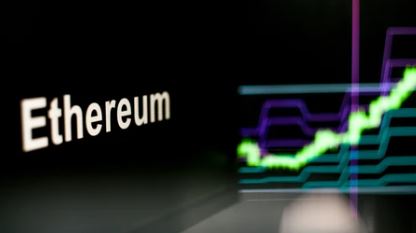To understand George Soros’s trading triumphs you need to develop a deep understanding of reflexivity. I attempt in this newsletter to explain it:

- We first look at the key assumptions behind the opposing but generally accepted paradigm of classical economics.
- Second, I’ll discuss the theory behind reflexivity,
Classical economics
The Enlightenment view of the world is that reality lays there, passively waiting to be discovered. Reason acts as a searchlight to illuminate that reality.
Thus, there is a separation between, on the one hand, people’s thoughts and understanding of the world and, on the other, the object.
The thinking agents cannot influence the underlying reality.
Thus, in natural science we can explain and predict the course of events with reasonable certainty.
Economic and other social areas of ‘study’ – Soros does not permit the use of the word ‘science’ with social disciplines – tried to imitate Newtonian physics and develop ‘laws’ to describe the fundamental processes.
To make their models work in a ‘scientific’ manner economists would simplify reality by making assumptions, for example, that market participants base their decisions on perfect knowledge, or that supply and demand curves could be taken as independently given (with supply not influencing demand, and demand not influencing supply, except through the classical interaction on the economist’s diagram).
For the physical scientists it is obvious that to gain knowledge there must be a separation between thoughts and their objective. The facts must be independent of the statements made about them.
So, the Earth will move around the Sun in a fairly predictable pattern regardless of what the observer thinks about the movement.
Many economists follow a sequence of logic analogous to the physics model in trying to describe economic outcomes, thus:
FUNDAMENTALS
leads to UNDERSTANDING/KNOWLEDGE
leads to MARKET PRICES
leads to EQUILIBRIUM
When we move away from the physical sciences we frequently encounter a problem. In social phenomena it is often difficult to separate fact from thoughts.
The decision maker in trying to make sense of the world attempts to be a detached observer but can never fully overcome the fact that he/she is part of the situation they seek to comprehend.
For example, people and human organisations, such as lending institutions, try to understand the underlying facts about the housing market, but in doing so – and in taking action – they influence the reality of the house supply, demand and prices.
Under the classical economics paradigm demand and supply curves are supposed to determine the market price.
But, it seems reasonable to suggest, that in many cases these curves are themselves subject to market influences, in which case prices cease to be uniquely determined. We end up with fluctuating prices rather than equilibrium.
Another example: It is thought that the markets are on the look-out for a recession looming over the horizon, that they anticipate it. Soros takes a different viewpoint believing that it is more correct to say that markets help to precipitate recessions; that
- Markets are always biased in one direction or another,
- Markets can influence the events they anticipate.
For example, it would be difficult to argue that the reaction of the financial markets to news coming out of the US residential mortgage market in 2008 did NOT influence events to take us into recession.
Similarly, the reaction of markets to the IPO of Coinbase last week, a Cryptocurrency market facilitator, has reinforced the views of many millions of speculators in Bitcoin, Etherium, etc., that there is something of value underneath the hype. The belief, the misperceptions, the Emperor’s fine clothes, etc., lead to real economic resources devoted to the emptiness, e.g., the mining of Bitcoin uses as much electricity each day as The Netherlands.
These biased markets are precipitating the diversion of resources that could otherwise be used to produce real goods and services into game of pass the parcel at ever higher prices when there is nothing in the parcel of cryptocurrencies.
Soros’ paradigm
So, the widely held paradigm that financial markets tend toward equilibrium is both false and misleading.
Soros contends that, first, financial markets never
………………To read more subscribe to my premium newsletter Deep Value Shares – click here http://newsletters.advfn.com/deepvalueshares/subscribe-1

 Hot Features
Hot Features












